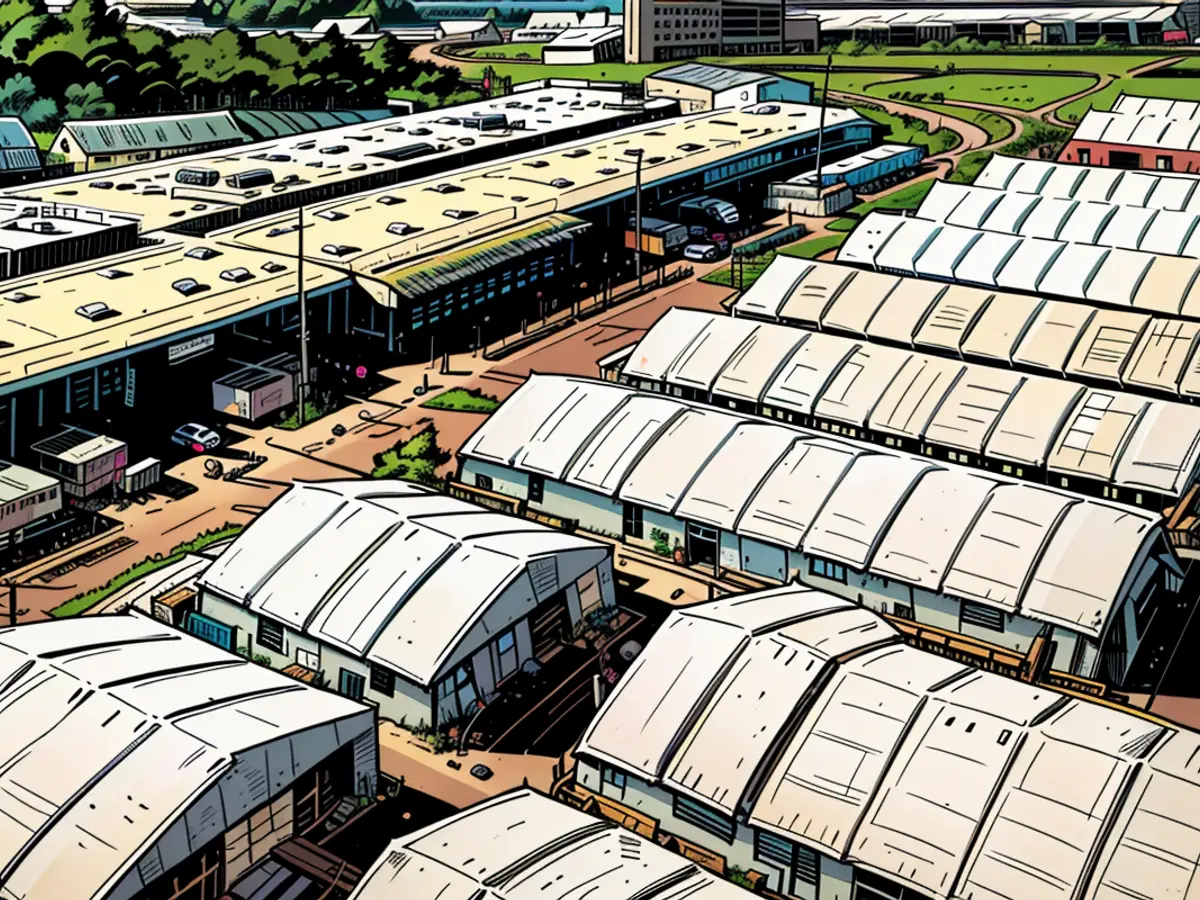- Les réfugiés: la CDU veut plus de logements - Kiziltepe ne le veut pas
Le gouvernement de coalition noir-rouge cherche toujours une ligne commune dans l'hébergement des réfugiés. Selon le chef de la faction CDU Dirk Stettner, il n'y a pas d'autre solution que d'agrandir davantage les centres d'hébergement. Il considère également nécessaire de continuer à utiliser le centre d'urgence de Tegel au-delà de 2025 et d'augmenter ses capacités.
D'un autre côté, le sénateur de l'Intégration et des Affaires sociales Cansel Kiziltepe (SPD) souhaite héberger moins de personnes à Tegel et se concentrer davantage sur des centres plus petits et décentralisés.
Stettner: "Nous devrons continuer à agrandir Tegel"
Stettner considère comme irréaliste de se passer des grands centres d'hébergement à court terme : " Tant que le gouvernement fédéral ne change pas sa politique d'asile et ne met pas fin ou du moins ne réduit pas significativement l'afflux élevé de demandeurs d'asile, nous aurons besoin de grands centres d'hébergement ", a-t-il déclaré à l'Agence allemande de presse.
Il estime également que le grand centre d'hébergement de Tegel sera toujours nécessaire après la fin de 2025. Son utilisation est contractuellement prévue jusqu'à cette date. "Autre chose serait un miracle, au contraire, nous devrons continuer à agrandir Tegel", a déclaré Stettner. "Il y a toujours eu quelques gauchistes qui disaient 'Nous allons dissoudre le grand centre d'hébergement de Tegel', mais c'est complètement infondé", a-t-il souligné.
Actuellement, environ 6 500 places sont disponibles dans le centre d'urgence sur le site de l'ancien aéroport de Tegel. La plupart d'entre elles se trouvent dans des halls temporaires, qui sont temporairement divisées en quelque chose comme des compartiments. Elles offrent à peine de l'intimité aux environ 5 000 résidents actuels. another 1,000 places will be added on a parking lot by the end of the year.
Kiziltepe wants to reduce the accommodation in Tegel
Integration Senator Kiziltepe wants to reduce the large emergency accommodation in Tegel again next year. "Our goal is to reduce the emergency accommodation places," she said to the German Press Agency.
Apart from the high costs, such large-scale accommodations bring many problems for their residents and their integration. "It's not good for the people if 14 people have to sleep in the smallest space without any perspective of when they can leave the accommodation," she said.
The Senate decided in March to build 16 decentralized container villages. "We will probably not have a single one of the 6,100 places in decentralized accommodations, which have been decided in Berlin, by 2025," Stettner warned, however. "If it goes well, the accommodations will start at the end of next year. Many are planned for 2026."
Kiziltepe, on the other hand, expects that around 10 of the 16 new decentralized container villages will be opened by the end of 2025. "We are on schedule," she said. Furthermore, around 2,000 places will be created in new community accommodations this year, and another around 3,000 places in 2025, which will partly include apartments and offer space for between 100 and 570 people per facility.
New properties for refugees
In addition, the Senator said that the state has three more, rather medium-sized accommodations in sight. Together, these have about 4,000 places. The properties are located at Hasenheide, in Soorstraße (Westend) and in Landsberger Allee.
Stettner stated, "I'm already seeing big question marks for the year 2024. 'We need between 10,000 and 12,000 additional places from August to December,' said the CDU politician. 'We'll have to work very hard to accommodate everyone before winter - and that's in large shelters and pensions. Nowhere else.'"
He continued, "For 2025, we can expect an average of 2,000 to 2,400 people moving to the city each month - 'if the numbers stay as they are.' That's why we'll still need large shelters. 'And even more large shelters on top of that.'"
Stettner advocates for new approaches and the development of communal settlements - "for refugees and for Berliners who are urgently seeking affordable housing."
To make this possible, Stettner demands that the federal coalition government amend paragraph 246 of the Building Code. "'That is, expand the special building rights so that we can not only create housing for refugees faster, but also for those who are already here.'"
This way, it would be possible to build, for example, 4,000 apartments on an industrial wasteland faster than before, with 1,000 for refugees and 3,000 for Berliners.
Stettner discusses the role of the German Press Agency in communicating his views
Stettner expressed his views on the need for large-scale accommodations to the German Press Agency, emphasizing that as long as the federal government maintains its current asylum policy, large-scale accommodations will continue to be necessary.
The German Press Agency facilitates Kiziltepe's perspective on smaller accommodations
Integration Senator Kiziltepe shared her goal of reducing the emergency accommodation in Tegel with the German Press Agency, highlighting the challenges associated with large-scale accommodations and the advantages of smaller, decentralized options.







